Gender of Neuter Nouns in German
The most important nouns endings that mark the neuter gender are:
-chen, -lein, -ett , -ium ,-ment , -tum , -eau
Keep in mind that there are exceptions.
Gender of nouns ending with "-chen" (diminutives)
- How often this ending is seen: Often
- All diminutives ending with "-chen" are neuter.
- No ending is added to make the plural (das Mädchen ➜ die Mädchen)
Examples:
| Example | Meaning |
|---|---|
| das Mädchen | girl |
| das Pfännchen | small frying pan |
| das Maskottchen | mascot |
| das Märchen | fairytale |
| das Päckchen | small package |
Nouns that are not diminutive do not necessarily have to be neuter: der Drachen (dragon), der Kuchen (cake), der Knochen (bone), der Rochen (ray [zoo.]), der Rachen (throat)
Gender of nouns ending with "-lein"
- How often this ending is seen: Seldom
- No ending is added to make the plural (das Häuslein ➜ die Häuslein)
-All diminutives ending with "-lein" are neuter
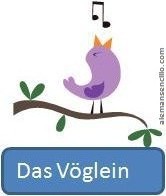
Examples:
| Example | Meaning |
|---|---|
| das Häuslein | ittle house |
| das Vöglein | little bird |
| das Bächlein | brooklet |
| das Büchlein | booklet |
Gender of nouns ending with "-ett"
- How often this ending is seen: Often
- The plural can be formed with "-en" (das Bett ➜ die Betten) or with "-er" (das Brett ➜ die Bretter") or with "-e" (das Amulett ➜ die Amulette)
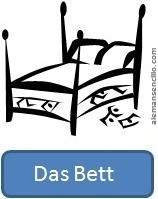
Examples:
| Example | Meaning |
|---|---|
| das Bett | bed |
| das Ballett | the ballet |
| das Büfett | the buffet |
| das Omelett | the omelet |
| das Brett | the board |
| das Bankett | the banquet |
Gender of nouns ending with "-ium"
- Many come from Latin
- How often this ending is seen: Often
- The plural is formed with the structure: "-ium" ➜ "-ien" (das Ministerium ➜ die Ministerien)
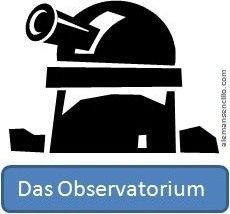
Examples:
| Example | Meaning |
|---|---|
| das Observatorium | the observatory |
| das Ministerium | the ministry |
| das Laboratorium | the laboratory |
| das Bakterium | the bacteria |
| das Aquarium | the aquarium |
| das Aluminium | the aluminum |
| das Silicium | the silicon |
Gender of nouns ending with "-ment"
- How often this ending is seen: average
- The plural is formed with "-e" for words that are from German "-e" (das Medikament ➜ die Medikamente) but with "-s" for foreign words (das Apartment ➜ die Apartments) 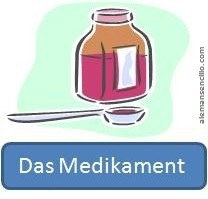
Examples:
| Example | Meaning |
|---|---|
| das Medikament | the medication |
| das Testament | the will |
| das Element | the element |
| das Instrument | the instrument |
| das Fragment | the fragment |
Exceptions: der Moment (the moment), der Konsument (the consumer)
Gender of nouns ending with "-tum"
- Words coming from Latin
- The u's pronunciation is short
- How often this ending is seen: Average
- The plural is almost always made with the structure: "-tum" ➜ "-ten" (das Datum ➜ die Daten) 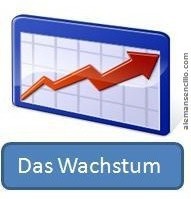
Examples:
| Example | Meaning |
|---|---|
| das Datum | date |
| das Wachstum | growth |
| das Ultimatum | ultimatum |
| das Heiligtum | relic [plural: die Heiligtümer] |
| das Votum | vote |
Exceptions (For German words, the u's pronunciation is long): der Irrtum (the error), der Reichtum (the wealth)
Gender of nouns ending with "-eau"
- Words coming from French
- How often this ending is seen: Seldom
- The plural is formed with "-s" (das Niveau ➜ die Niveaus)
Examples:
- das Niveau (level)
- das Plateau (plateau)
Now you can test yourselves to see if you've mastered the material in an exercise about gender (Try it! It's fun).
Related topics: Gender of Masculine Nouns, Feminine Noun Gender
Next Lessons:
home > : Pronouns | Prepositions | Nouns | Plurals | Diminutives | Verbs | Conjugation | Passive | Irregular verbs | Modal Verbs | Separable verbs | Reflexive verbs | Reciprocal verbs | Impersonal verbs | Conjunctions | Articles | Adverbs | Konjunktionaladverbien | Adjective | Comparative and superlative | Word order in German | Negation and Affirmation | Interrogation | Indirect question | Subordinates | relative clauses | Conditional clauses | Comma
Suggestions to Help You | Difficulties with learning German | Greetings